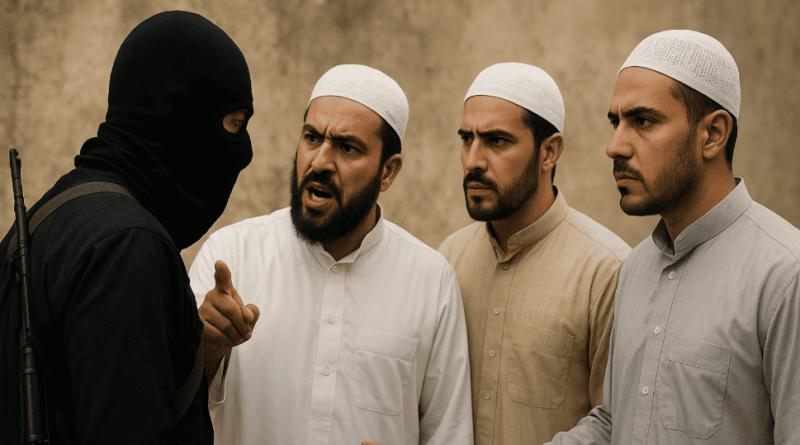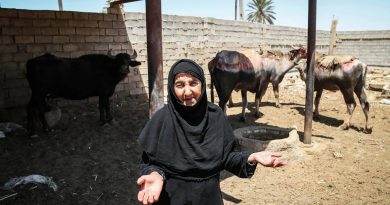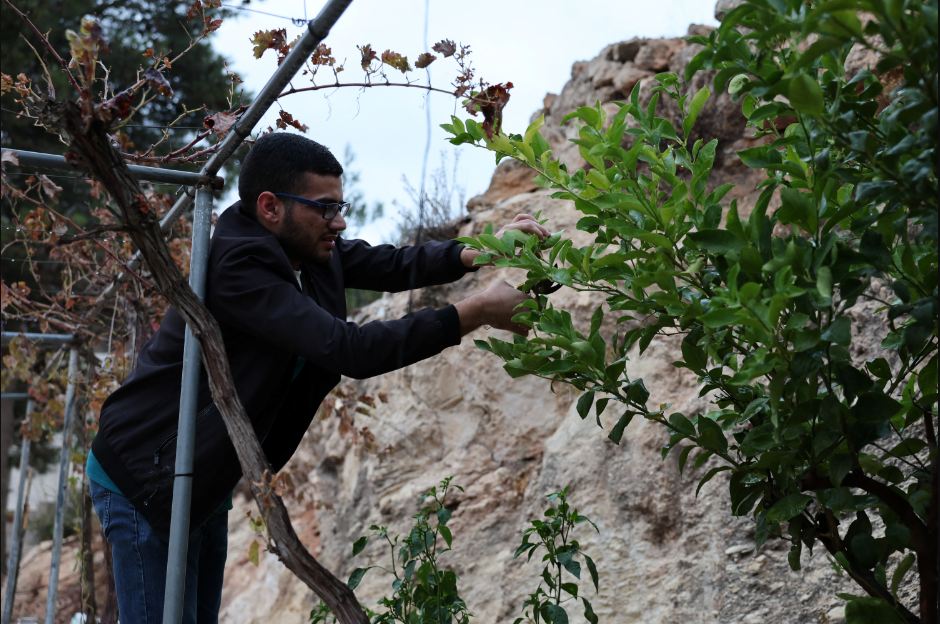OPINION: Fighting Muslim Terrorists is Also an Islamic Duty
Fighting Muslim terrorists is not a betrayal of Islam—it is one of its highest forms of loyalty. It is an act of service to God, to humanity, and to the truth itself.
In recent years, a disturbing misconception has taken root in public discourse—both among some Muslims and many non-Muslims—that if a Muslim is practising his faith, he will avoid condemning or fighting so-called “Muslim” terrorists. This idea is not only misguided, it is dangerous. Islam’s moral and legal framework makes it clear: injustice and aggression are to be opposed, regardless of who commits them.
It is true that terrorism often hides behind religion to gain legitimacy. But when those committing violence claim to act in the name of Islam, the duty of practising Muslims to reject and oppose them becomes even greater. This is not a betrayal of our faith; it is its fulfilment.
The Qur’anic mandate to fight oppression
The Qur’an is explicit about our duty in such cases. Allah says in Surah Al-Hujurat (49:9): “And if two factions among the believers should fight, then make settlement between the two. But if one of them oppresses the other, then fight against the one that oppresses until it returns to the ordinance of Allah. And if it returns, then make settlement between them in justice and act justly. Indeed, Allah loves those who act justly.”
This verse leaves no room for doubt. When believers fall into conflict, our first duty is reconciliation. But if one side turns into an aggressor—whether through violence, injustice, or rebellion—it becomes a religious obligation to resist that side until the aggression ends. The fight is not for power, revenge, or political gain; it is for restoring justice and order. And crucially, when peace is restored, we are commanded to reconcile with fairness, not perpetuate hostilities.
This principle is profoundly important in today’s context. Groups such as Hezbollah, Al-Qaeda, ISIS, Boko Haram, Lashkar-e-Taiba, Jaish-e-Mohammed, and others claim to fight for Islam but commit atrocities against civilians, destroy communities, and distort the religion’s message. According to Qur’anic guidance, such actions are not just crimes—they are acts of oppression that demand a firm response from the Muslim community itself.
The Prophetic Precedent
The Prophet Muhammad (peace be upon him) himself set the precedent for dealing with extremist rebels. Among the most notorious examples in early Islamic history was the emergence of the Khawaarij. They were a puritanical faction who declared other Muslims as disbelievers and shed innocent blood in the name of religion.
The Prophet (peace be upon him) warned against them in multiple authentic narrations, describing them as people who would “recite the Qur’an but it would not go beyond their throats” and who would “exit the religion as an arrow leaves the bow.” He commanded the Muslim community to fight them when they became violent, because their actions endangered both faith and society.
This precedent destroys the myth that one must stay silent or passive in the face of violent Muslims. On the contrary, Islam considers it a duty to confront them, to protect the innocent, and to preserve the integrity of the religion from distortion.
Breaking the silence within the Muslim community
Sadly, in modern times, some Muslims hesitate to speak against extremist groups for fear of “washing dirty linen in public.” They worry that condemning terrorists will give ammunition to Islamophobes. This fear is understandable but misplaced.
The truth is, remaining silent only strengthens the extremists and allows Islam’s enemies to portray their crimes as representative of the entire faith. By contrast, openly opposing and dismantling these groups sends a powerful message: they do not speak for us, they do not act in our name, and they will be resisted from within.
In fact, this is precisely the kind of intellectual and moral leadership that is needed today. If we do not take ownership of the narrative, others will—and they will not portray Islam with justice.
A duty rooted in justice, not politics
One of the most remarkable features of the Qur’anic command in Surah Al-Hujurat is its emphasis on justice, even towards those we fight. The moment the aggressors return to obedience and abandon their violence, the Qur’an orders us to stop fighting and reconcile. This is not a call for vengeance or perpetual hostility. It is a framework for restoring peace, protecting lives, and upholding fairness.
This stands in stark contrast to how modern terrorist groups operate. Their violence is indiscriminate, their grievances are often politically inflated, and their methods directly contradict Islamic rules of war, which prohibit harming civilians, destroying property unnecessarily, or targeting places of worship.
The cost of ignoring this duty is immense. We have seen entire Muslim-majority countries destabilized by the unchecked spread of extremist violence. Iraq, Syria, Somalia, and parts of Nigeria are just a few examples. In each case, ordinary Muslims have suffered the most—losing homes, livelihoods, and loved ones.
Extremist violence not only harms individuals; it also damages Islam’s global image, making it harder for peaceful Muslims to practise their faith without prejudice. Fighting such groups is, therefore, both a moral obligation to protect the innocent and a strategic necessity to safeguard the religion’s honour.
Standing firm against distortion
As a practising Muslim, when I oppose violent extremists, I do so not because I am less religious, but because my faith compels me to. I take this stand not to appease anyone, but to fulfil a divine command. Those who threaten peace will not find peace from us, regardless of their slogans or claimed piety.
The Prophet (peace be upon him) warned us about the harm of such groups long before they appeared in modern form. Our job is to heed that warning and act on it.
In the end, fighting Muslim terrorists is not a betrayal of Islam—it is one of its highest forms of loyalty. It is an act of service to God, to humanity, and to the truth itself.
The Qur’an commands it. The Prophet (peace be upon him) practised it. And history shows us the consequences of ignoring it.
For the sake of our religion, our societies, and the generations to come, we cannot afford silence. We must stand up, speak out, and, when necessary, take decisive action against those who bring violence into the name of our faith. This is not only our civic duty—it is our Islamic duty.
Disclaimer: Views expressed by writers in this section are their own and do not reflect Milli Chronicle’s point-of-view.



